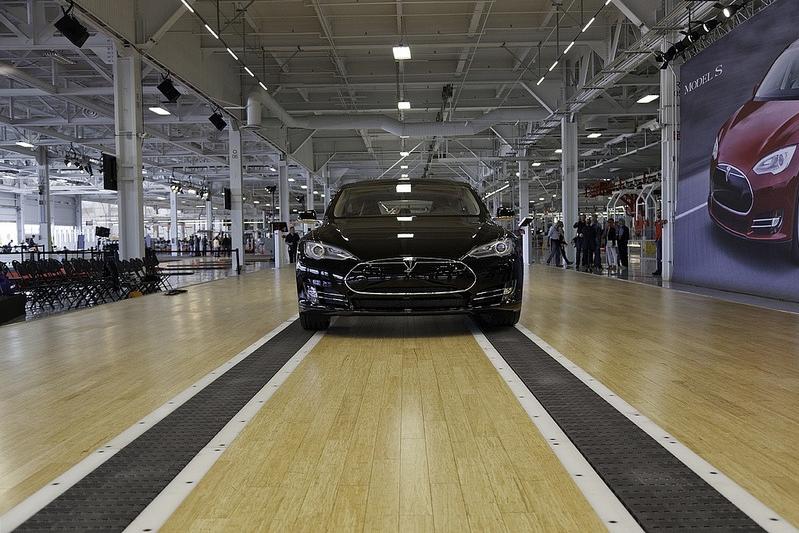
Two companies, one long a leader in battery manufacturing, the other an upstart disrupting the entire industry, have agreed to work together and build a large-scale battery factory in the United States. Late last week Panasonic and Tesla Motors inked an agreement that outlines a framework for building what Tesla has called the “Gigafactory.”
This latest partnership builds upon the relationship the Japanese electronics giant and Silicon Valley luxury electric vehicle maker have long fostered. Panasonic invested millions of dollars in Tesla earlier this decade in a bid to accelerate the expansion of electric vehicles in the marketplace, and the company also became one of the car manufacturer’s most important suppliers of lithium-ion batteries.
Details of where the factory will be located and the total amount to be invested were not disclosed in the joint press release the companies issued last week. The smart money is on the Reno, Nevada area, where Tesla is already breaking ground, according to Will Oremus of Slate. But Tesla is also mulling various sites across the U.S. Southwest and will most likely see which state gives it the best deal. Watch for the bidding and promises of financial incentives to intensify with Tesla’s claim that the Gigafactory will employ as many as 6,500 workers by 2020.
The deal, tantalizingly close to becoming reality, creates winners all around. For Tesla, breaking ground on the massive battery factory will establish the company as a force in the automotive and battery sectors. While other car companies repeatedly insist the future of EVs rest on more battery innovation, Tesla, with Elon Musk at the helm, insists improved economies of scale can help bring the cost of lithium-ion batteries down by 30 percent.
Panasonic also gains from its association with Tesla. The company already has a robust lithium-ion battery business, but has had a rocky two years as the company trimmed staff and products as it suffered financial losses. While the Tesla will own the factory, Panasonic will provide the technology and equipment needed to manufacture the lithium-ion battery cells. The Gigifactory’s success could lead to similar deals for Panasonic — although this agreement, which according to Bloomberg could reach a cost of up to $5 billion by the end of the decade, will for long be the largest such battery factory by far.
And assuming the Gigafactory ends up in northern Nevada, the Reno area will come out ahead as well. The region has already emerged as a data center and e-commerce hub, and local politicians are salivating at the thought of automobile manufacturing securing a future in the state. A move by Tesla to Reno would inspire new battery technology to develop while others move in — creating a clean tech hub at the footstep of the Sierra Nevadas.
Image credit: Tesla Motors
Leon Kaye has lived in Abu Dhabi for the past year and is on his way back to California. Follow him on Instagram and Twitter.

Leon Kaye has written for 3p since 2010 and become executive editor in 2018. His previous work includes writing for the Guardian as well as other online and print publications. In addition, he's worked in sales executive roles within technology and financial research companies, as well as for a public relations firm, for which he consulted with one of the globe’s leading sustainability initiatives. Currently living in Central California, he’s traveled to 70-plus countries and has lived and worked in South Korea, the United Arab Emirates and Uruguay.
Leon’s an alum of Fresno State, the University of Maryland, Baltimore County and the University of Southern California's Marshall Business School. He enjoys traveling abroad as well as exploring California’s Central Coast and the Sierra Nevadas.














